XNOR Gate PDF Download
Introduction
The XNOR gate is the complement of the XOR gate. It is a hybrid gate. Simply, it is the combination of the XOR gate and NOT gate. The output level of the XNOR gate is high only when both of its inputs are the same, either 0 or 1. The symbol of the XNOR gate is the same as XOR, only complement sign is added. Sometimes, the XNOR gate is also called the Equivalence gate.
2-input Ex-NOR gate
It is a simple form of the hybrid gate XNOR. In this type of XNOR gate, there are only two input values and an output value. There are 22=4 possible combinations of inputs. The output level is high when both inputs are set to high(1). The Boolean expression of 2-input XNOR gate is as follows:
Y=(A⨁B)'
Y=((AB)'+AB)
The truth table and logic design are given below:
Logic Design
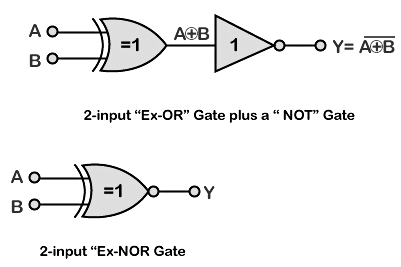
Truth Table
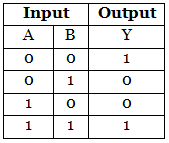
The 3-input XNOR Gate
Unlike the 2-input XNOR gate, the 3-input XNOR gate has three inputs. There are 23=8 possible combinations of inputs. The Boolean expression of the logical Ex-OR gate is as follows:
Y = (A⨁B⨁C)'
Y = (ABC)'+ABC'+AB'C+A'BC
The truth table and logic design are given below:
Logic Design
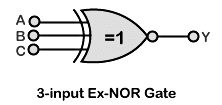
Truth Table
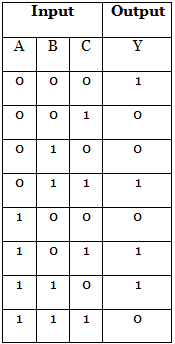
Ex-OR gate equivalent circuit
We can form the XNOR or Ex-NOR gate using the gates such as AND, OR, and NOT gate. The main disadvantage of this implementation is that we use different types of gates to form a single XNOR gate. By using the NAND gates only, we can implement the Ex-NOR gate also. This is an easier way of producing Ex-NOR gate functionality.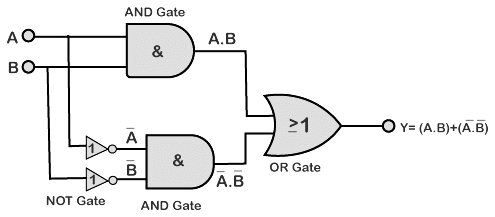
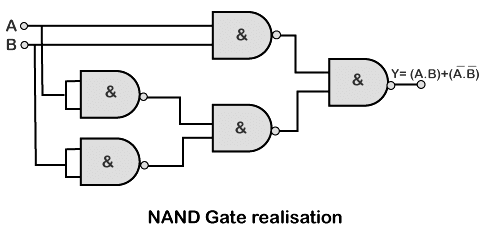
Use of Ex-OR gate
Ex-NOR gates are used mainly in electronic circuits that perform arithmetic operations and data checking such as Adders, Subtractors or Parity Checkers, etc. As the Ex-NOR gate gives an output of logic level "1," whenever its two inputs are equal, it can be used to compare the magnitude of two binary digits or numbers and so Ex-NOR gates are used in Digital Comparator circuits.













